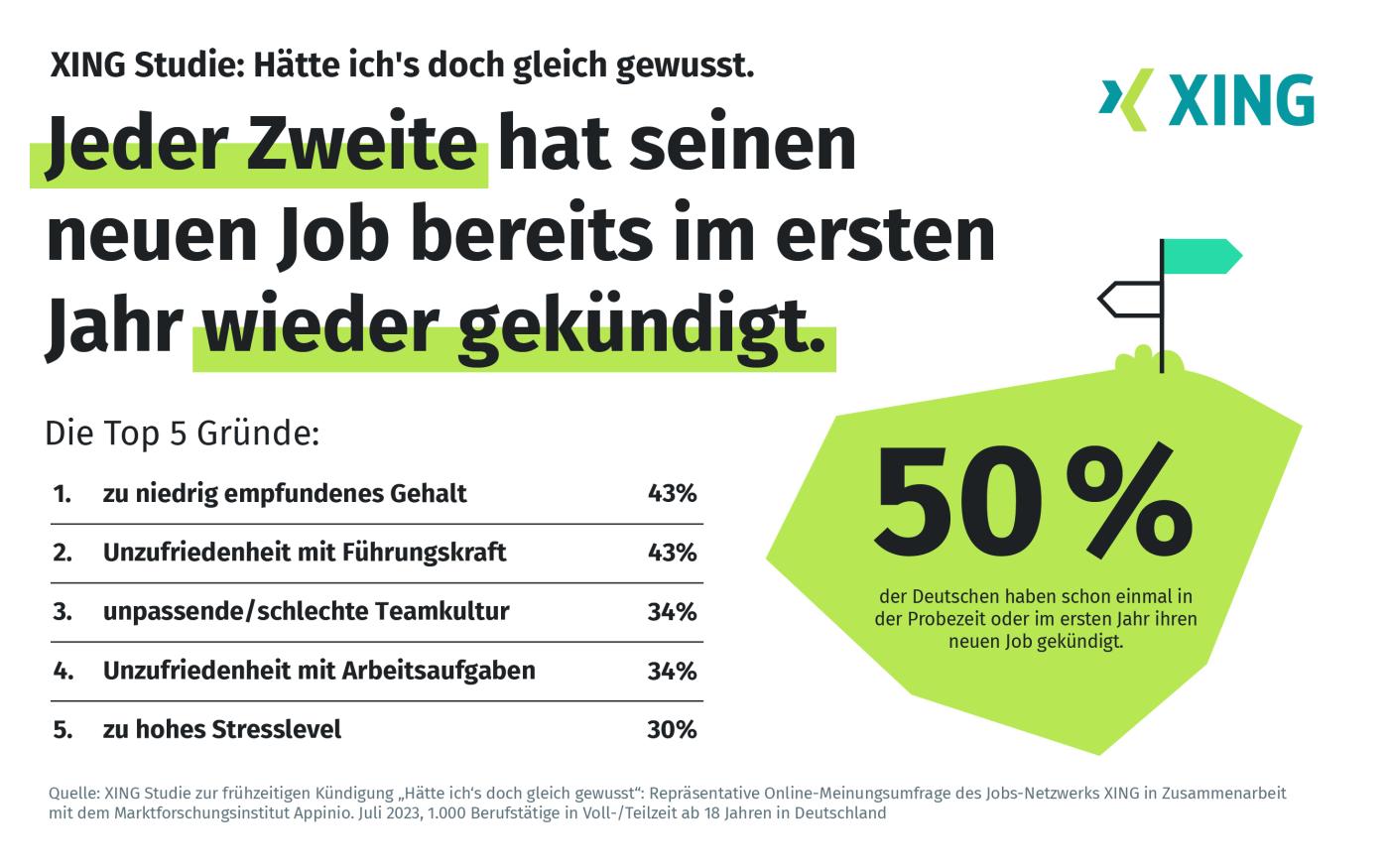Around 75 per cent expressed dissatisfaction with a new job, the survey found. More than half left their job during the probationary period or in the first year of employment with men leaving more frequently than women. Around 58 per cent of those in Generation Y (early 1980s to late 1990s) gave up a new job after only a few months making them significantly more determined than older employees. "The results show that it is usually a combination of several reasons that lead employees to leave a new job after only a short time," said Dr Julian Stahl, a Xing labour market expert.
Every second person interviewed for the Xing career network's latest survey left their job in the first year. Most cited insufficient pay and dissatisfaction with the boss or the team culture as the main reasons. The majority of interviewees do not regret giving up their jobs. Around 1,000 persons in full or part-time employment, retraining, the temporarily unemployed and jobseekers aged 18 and over in Germany were interviewed by Appinio online in July for the XING survey.

Dissatisfaction with management shared by young and old
Respondents cited three reasons for leaving their job in the first year namely a salary that was too low (43 per cent), which was most frequently cited by men and Generation Z (born between 1997 and 2012), dissatisfaction with the manager or the team culture (43 per cent), which was more frequently cited by women, and a poor team culture (34 per cent). Unsatisfactory tasks (34 per cent), too much stress (30 per cent) and too much overtime (26 per cent) were also decisive. However, young and old were unanimous on one point: for about 46 per cent of Generation Z and baby boomers (born between 1946 and 1964), dissatisfaction with the manager was the trigger for leaving.
Few regret leaving job
Hardly any interviewee regretted leaving their job early. Around 80 per cent did not consider their decision too hasty. Women in particular were convinced that they had done the right thing (85 per cent), while 75 per cent of men were certain. Around 91 per cent of the interviewees said they were happier in their next job. Companies should be more attentive when new recruits begin working. "Frictional losses due to hiring mistakes also mean economic damage in that can be prevented," Stahl said.
mm/pb
Sources and further information
More
Similar articles

Plants improve performance in VR offices, study finds

Generation Z most likely to change jobs, Xing survey finds

Willingness to change jobs remains high, Onlyfy by Xing survey finds
